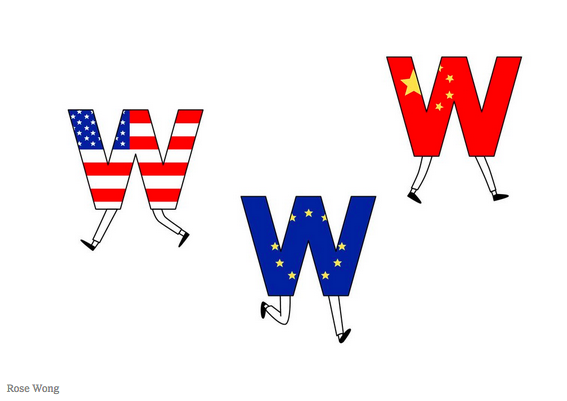In September, Eric Schmidt, the former Google chief executive and Alphabet chairman, said that in the next 10 to 15 years, the internet would most likely be split in two — one internet led by China and one internet led by the United States.
Mr. Schmidt, speaking at a private event hosted by a venture capital firm, did not seem to seriously entertain the possibility that the internet would remain global. He’s correct to rule out that possibility — if anything, the flaw in Mr. Schmidt’s thinking is that he too quickly dismisses the European internet that is coalescing around the European Union’s ever-heightening regulation of technology platforms. All signs point to a future with three internets.
The received wisdom was once that a unified, unbounded web promoted democracy through the free flow of information. Things don’t seem quite so simple anymore. China’s tight control of the internet within its borders continues to tamp down talk of democracy, and an increasingly sophisticated system of digital surveillance plays a major role in human rights abuses, such as the persecution of the Uighurs. We’ve also seen the dark side to connecting people to one another — as illustrated by how misinformation on social media played a significant role in the violence in Myanmar.
There’s a world of difference between the European Union’s General Data Protection Regulation, known commonly as G.D.P.R., and China’s technologically enforced censorship regime, often dubbed “the Great Firewall.” But all three spheres — Europe, America and China — are generating sets of rules, regulations and norms that are beginning to rub up against one another. What’s more, the actual physical location of data has increasingly become separated by region, with data confined to data centers inside the borders of countries with data localization laws.




